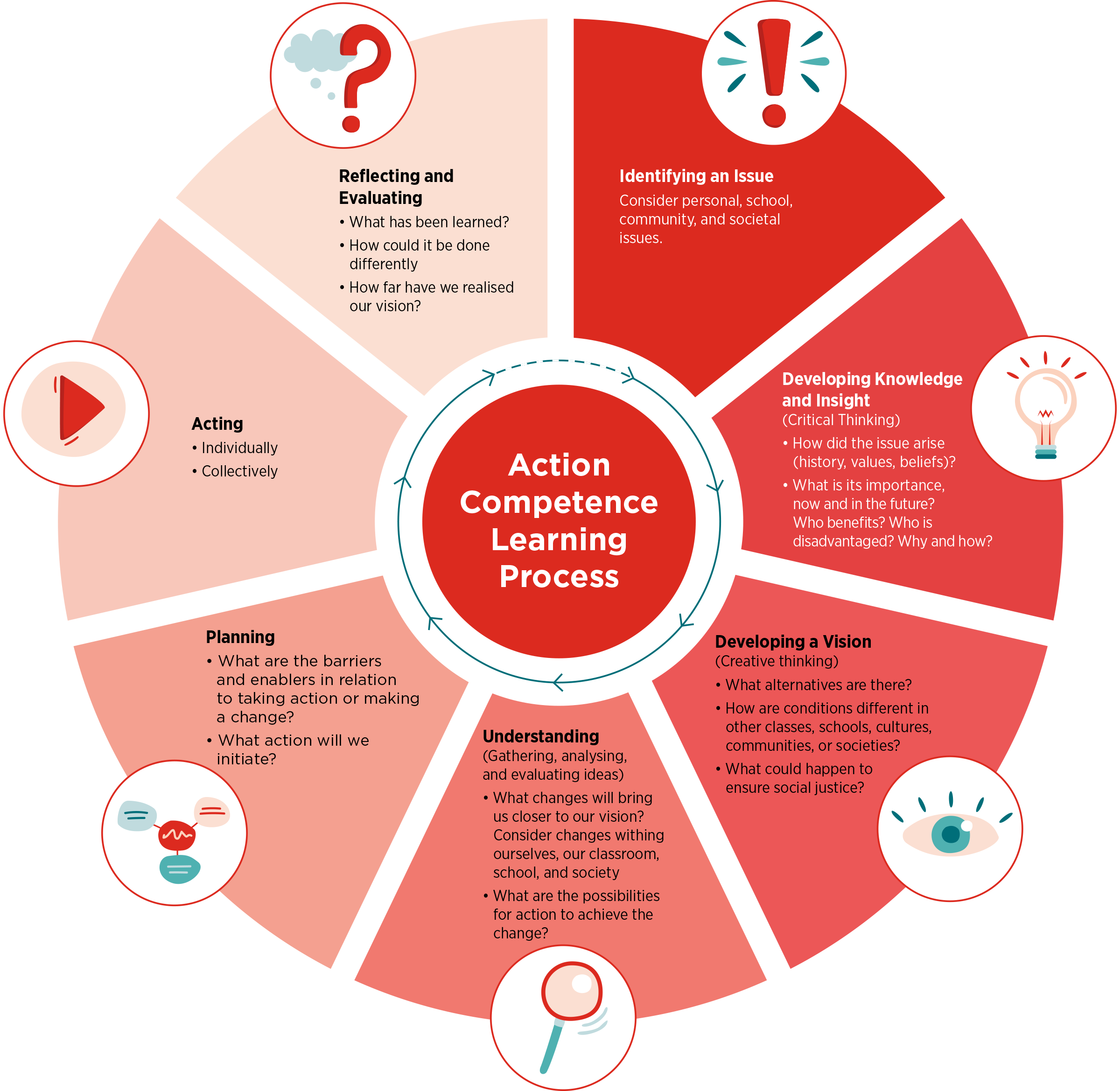Action competence learning process
The action competence learning process is a model for engaging in health promotion. It provides a framework that enables ākonga to take individual or collective action. The term "action competence" means the development of competencies (understandings and skills) that enable students to take critical action. Ākonga should choose an issue for action that has meaning and relevance for them. Issues will emerge out of the themes or contexts you are currently studying.
When an issue has been agreed on, students use critical thinking to explore the issue, for example, by discussing the questions for critical thinking.
They then engage in creative thinking to visualise how things could be or to decide what improvements they would like to see. They analyse the issue and their ideas about it to determine what is possible and go on to identify what could help them to achieve their goal (enablers) and what could hinder them (barriers). They develop a plan of action and implement it. After completing their action, students evaluate the outcome(s) and identify what they have learned from the experience (even if their original goal has not been achieved). The evaluation may reveal that there are significant environmental or social factors that need to be addressed before their goal can be realised. If this is the case, they begin the process again.
Activity example
The Rights, responsibilities and actions activity from the Understanding ourselves and getting on together resource collection includes an opportunity to use the action competence learning process to identify an aspect of the classroom environment that can be enhanced and implement a plan to achieve this.
